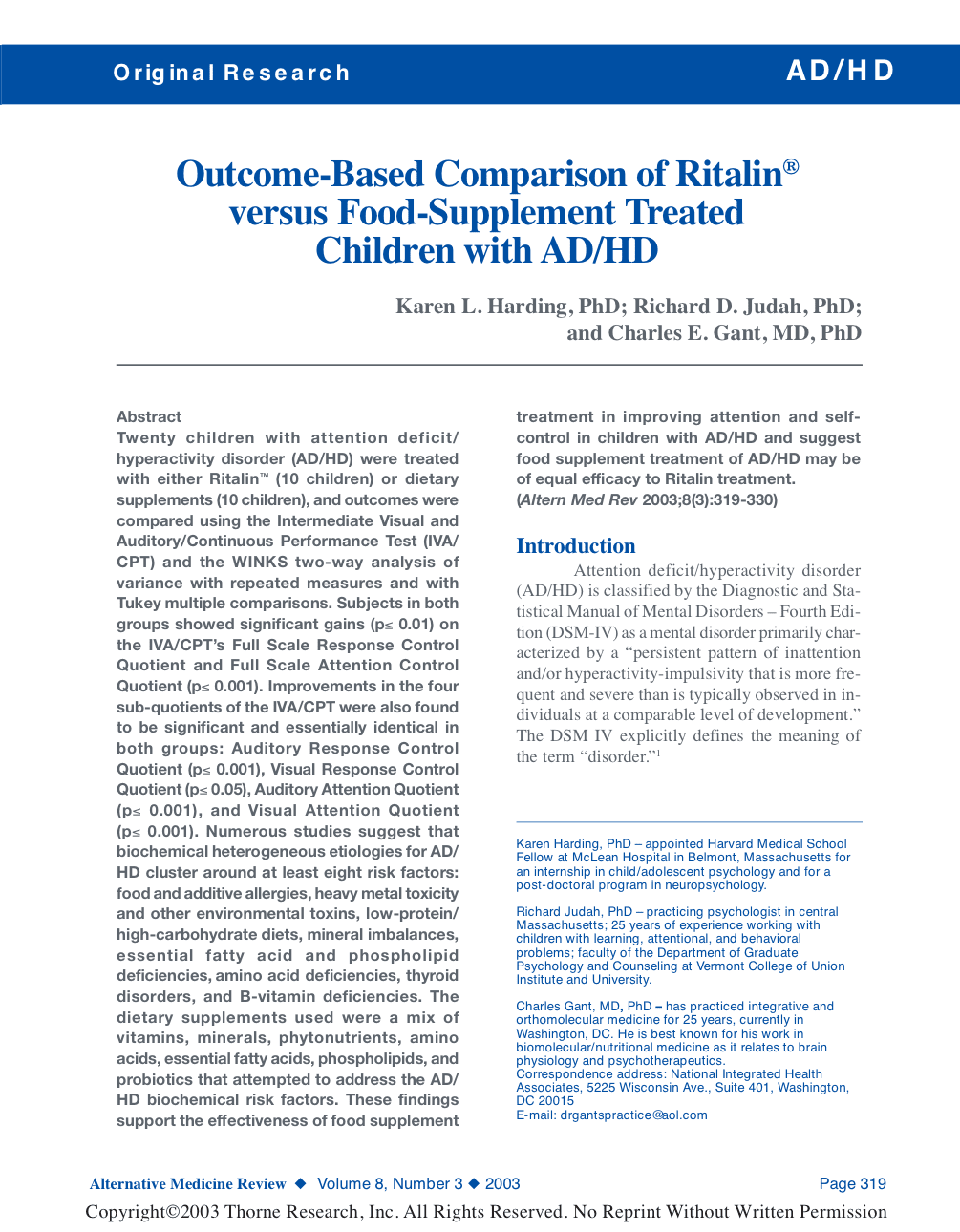Abstract
Twenty children with attention deficit/hyperactivity disorder (AD/HD) were treated with either Ritalin™ (10 children) or dietary supplements (10 children), and outcomes were compared using the Intermediate Visual and Auditory/Continuous Performance Test (IVA/CPT) and the WINKS two-way analysis of variance with repeated measures and with Tukey multiple comparisons. Subjects in both groups showed significant gains (p≤ 0.01) on the IVA/CPT’s Full Scale Response Control Quotient and Full Scale Attention Control Quotient (p≤ 0.001). Improvements in the four sub-quotients of the IVA/CPT were also found to be significant and essentially identical in both groups: Auditory Response Control Quotient (p≤ 0.001), Visual Response Control Quotient (p≤ 0.05), Auditory Attention Quotient (p≤ 0.001), and Visual Attention Quotient (p≤ 0.001). Numerous studies suggest that biochemical heterogeneous etiologies for AD/HD cluster around at least eight risk factors: food and additive allergies, heavy metal toxicity and other environmental toxins, low-protein/high-carbohydrate diets, mineral imbalances, essential fatty acid and phospholipid deficiencies, amino acid deficiencies, thyroid disorders, and B-vitamin deficiencies. The dietary supplements used were a mix of vitamins, minerals, phytonutrients, amino acids, essential fatty acids, phospholipids, and probiotics that attempted to address the AD/HD biochemical risk factors. These findings support the effectiveness of food supplement treatment in improving attention and self-control in children with AD/HD and suggest food supplement treatment of AD/HD may be of equal efficacy to Ritalin treatment. (Altern Med Rev 2003;8(3):319-330)







